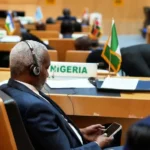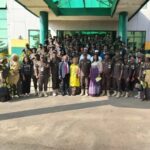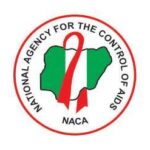A News Analysis by Mustapha Yauri, News Agency of Nigeria (NAN)
The Nigerian College of Aviation Technology (NCAT), Zaria, is one of the country’s foremost aviation schools.
It is dedicated to training highly skilled professionals for the sector.
Since its establishment in 1964, the college has grown into the largest Approved Training Organisation (ATO) in Africa.
Over the years, NCAT has helped shape the careers of pilots, aircraft maintenance engineers, air traffic controllers, and many other aviation experts.
Across Africa and beyond, the story of aviation training reveals both progress and gaps.
For instance, Ethiopia’s aviation academy produces fewer than 50 pilots annually, while Rwanda’s Akagera Aviation School trains about 20 fixed-wing and 11 helicopter students per intake.
These numbers are far below industry demand, forcing airlines to rely on expatriates.
By contrast, India issued over 1,600 commercial pilot licences in 2023 alone; its highest ever and estimates it will need at least 1,000 new pilots annually over the next five years.
Moreover, Boeing projects that India will require about 30,000 new pilots in two decades, a target that has prompted massive investment in flight schools, aircraft fleets and simulators.
In a bid to bridge Africa’s manpower gaps, NCAT is setting new standards in training and positioning Nigeria as a hub for aviation excellence on the continent.
The college, which is an International Civil Aviation Organisation (ICAO) Regional Centre of Excellence, serves as a training hub for Nigerian and African pilots, engineers, navigation aid technicians and other key players in the sector.
Consequently, its central commitment is to ensure training that meets global standards and enhances aviation safety.
To achieve this, the college has consistently upgraded its facilities and curriculum in line with international benchmarks.
In addition, strategic plans are underway to procure additional simulators, modern aircraft and other training kits that will not only improve service delivery but also attract foreign trainees.
The goal, therefore, is to reduce Nigeria’s dependence on overseas aviation centres, which for decades consumed millions of dollars in capital flight.
Rector of the college, Dr Danjuma Ismaila, said his vision on assuming office earlier in the year was to reposition NCAT.
He explained that the goal is to enable the college to retain its status as the ICAO regional centre of excellence and one of the best in Africa in terms of facilities and capabilities.
“With these in mind, we are going to expand our programmes to meet the evolving training needs of the aviation industry in Nigeria and other African countries.
“With NCAT Zaria African countries need not to go to other continents for aviation training,’’ he said.
According to him, this informed his decision to reposition the college in terms of infrastructure, manpower, additional programmes and equipment.
However, while acknowledging the success of NCAT in improving manpower needs in Nigeria and Africa, he noted that the college is solely funded by the federal government.
As such, he said it encounters hitches in meeting its funding needs.
“That challenge is not peculiar to the college alone as there are other competing demands to be addressed by the government,’’ he explained.
Therefore, he added, the college is devising means to enhance its internally generated revenue to address funding gaps by leveraging on its available equipment and opportunities in Africa.
The rector said the college had a Boeing 737Ng Simulator.
“The simulator will reduce the country’s capital flight; Nigerian Pilots do not have to travel abroad for type rating or refresher training on B737, before they renew their licence.
“Foreign pilots also come to NCAT Zaria to train using the Boeing 737 Simulator,’’ he said.
Besides, he said NCAT also has an aircraft fire-fighting simulator to provide comprehensive training in various aircraft fire and rescue scenarios.
“Notwithstanding the Boeing 737 flight simulator and fire fighting simulator, if we can have additional equipment and facilities the college can be self-sufficient in terms of funding,’’ he added.
While speaking on the delay for delivery of additional aircraft for training, Ismaila said it was occasioned by paucity of funds.
He explained that the college signed a contract with a firm about five years ago for the supply of 20 Diamond Aircraft that use Jet A1, the fuel used by commercial jets, instead of costly Avgas.
“One of the reasons that informed the decision to embark on re-fleeting was the high cost and non-availability of aviation gasoline (AVgas).
“AVgas is not available locally, it has to be imported and it is quite expensive. With Diamond Aircraft, the college realised 75 per cent savings in the amount of money it spent on aviation fuel annually,’’ he said.
“Unfortunately, we have received 50 per cent of the aircraft, but we are unable to meet our obligations in terms of releasing funds to the contractor, that is why the remaining aircraft were not supplied.
“But we are comfortable with what we have now in terms of training; our competitors in Ilorin had just three aircraft while NCAT has 10. We expect to have 10 additional aircraft as soon as our financial stability improves,’’ he said.
Furthermore, the rector said plans had reached an advanced stage to convert the acquired Zaria Hotel into a four-star hotel for accommodating high calibre participants and other members of the public.
“Some international pilots with thousands of flying hours may not find our hostels convenient, so we want a befitting accommodation for them,’’ he said.
On expanding revenue sources, Ismaila said the college also plans to extend its runway to accommodate bigger commercial aircraft.
“We discovered that there are opportunities to attract a lot of commercial traffic. Right now Kaduna Airport is having one flight in a day, while there are many potential travellers in the catchment area.
“Some airlines are looking for options and Zaria Aerodrome could offer a good alternative when the runway is extended to the minimum standard of 2.4km required for big aircraft,’’ he said.
He explained that the first contract for renovation of the runway awarded five years ago is ongoing and is expected to be completed by the end of this year.
Once completed, the college would commence procurement for the extension.
However, he noted that parts of the land earmarked for the project had been encroached upon, a matter that is under litigation.
Ismaila reiterated NCAT’s commitment to strengthening aviation safety through training.
“Training is a key foundation for safety, if you don’t have adequate training you would not be licensed to operate; with this training we will help enhance safety in the aviation industry,’’ he said.
For Nigeria, aviation experts say NCAT’s renewed drive of re-fleeting, simulators, hotel conversion and runway expansion must be matched with deliberate policies to absorb graduates into airlines.
Otherwise, the paradox of unemployed pilots in a growing aviation market may persist.
Ultimately, with its commitments to excellence and pursuit of financial autonomy, NCAT is positioning itself not just as Nigeria’s pride, but as Africa’s beacon for aviation training. (NAN)













Wow! Bravo to NCAT Zaria and it’s management headed by Dr. Danjuma Ismaila Adamu.